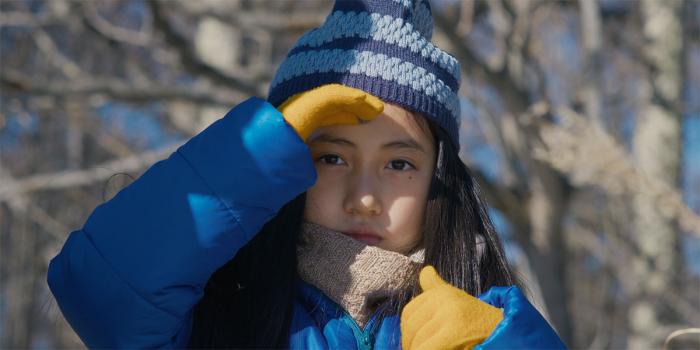

TIFF 2023: In ‘Evil Does Not Exist’, Ryusuke Hamaguchi Offers a Glacial and Humane Exploration of Man Versus Nature
By Kayleigh Donaldson | Film | September 8, 2023 |
By Kayleigh Donaldson | Film | September 8, 2023 |

The Japanese drama Evil Does Not Exist comes to us courtesy of Ryusuke Hamaguchi, who broke new ground by directing the first-ever Japanese nominee for Best Picture. The success of 2021’s Drive My Car, which included a nomination for Best Director and win for Best International Feature, have ensured that Hamaguchi’s languid, humane, and endlessly moving films will always end up on your local critic’s must-watch list. His latest further confirms his talents.
Deep in the forest of the small rural village of Harasawa, the locals live in relative serenity surrounded by mountains and forests. Takumi (played by acting newcomer Hitoshi Omika, a former AD in Hamaguchi’s previous films) lives in the village with his young daughter Hana, making a living doing odd jobs for his neighbors. Their peace is threatened by the impending construction of a glamping site by a Tokyo-based talent company, one that seems uninterested in their concerns about social and ecological damage. Their way of life is at risk.
To say any more about the plot of Evil Does Not Exist would be to miss the point. Hamaguchi’s films aren’t jam-packed with twists and turns. He’s more likely to stop everything, including movement of the camera, to focus on two people talking about the mundanities of their lives. It sounds unbearable, but in practice, it’s stunning. I remain fascinated by how this director can take something as simple as two people conversing in a car (he does love his vehicle-based confessions) and make it feel as though these characters have torn themselves apart to reveal their inner pain. And it’s all done without screaming or monologues.
It’s realism to its most logical conclusion but never slapdash in its approach. The craft is evident, such as in a subtly striking moment where we see Takumi turn up late to get his daughter from school and the camera is revealed to be attached to the front of his car. The closest Hamaguchi gets to showing off is a tracking shot across the forest as father looks for daughter then finds her amid the trees, the pair of them in sync with nature. It is the wild world that takes up much of Hamaguchi’s gaze, with the film opening with an overture of sorts that looks up at the bare branches while Eiko Ishibashi’s score, which seems heavily inspired by the prelude to Tristan Und Isolde plays.
The pacing is appropriately glacial, inviting you to feel comfortable in this (currently) untouched space. Yet amidst the beauty are moments that unnerve. As Takumi gives his daughter a piggyback ride through the forest, teaching her about the wildlife they pass, we see glimpses of what look like deer carcasses in the background. Are they merely resting or has something killed them? Was it a hunter or something more poisonous from the outside world? Hamaguchi is elusive in offering cut-and-dry answers to the many questions we ponder, befitting a title as enigmatic as Evil Does Not Exist.
Even the central conflict, such as it is, is handled with a light touch. The glamping company (the word always sounds terrible when spoken aloud) sends two hapless mid-level employees, Takahashi (Ryuji Kosaka) and Mayuzumi (Ayaka Shibutani), to the village to offer a presentation on their plans. It’s less a peace offering than a sign that the company plans to steamroll over all local concerns, and everyone knows it. When Takumi and his neighbors thoroughly dismantle every corporate speaking talking point, Takahashi and Mayuzimi can do nothing but admit defeat. Hamaguchi makes absorbing drama from this community meeting, eliciting several laughs at the cluelessness of the reps (as well as one especially sardonic young local who seems ready to throw hands at a moment’s notice.)
And then Hamaguchi moves the focus towards the reps: Takahashi is lonely and sick of his job while Mayuzumi is more open to the village’s worries. When the pair go back to their boss, who only speaks to them via Zoom calls in his car, they try to fight for change but know it’s a losing battle. Hamaguchi gives them enough space to be as complicated and conflicted as the ostensible heroes of the tale. Country life and its simplicity is not positioned as more virtuous than that of city slickers. As Takumi notes, the majority of residents are also newcomers as the region was only developed into a village after the Second World War. If Hamaguchi believes that evil does not exist, he’s certainly not ignorant to the callousness of capitalism.
I’ve seen some people describe the film as a ‘tone poem’, which is one of those phrases we like to use when something isn’t plot-driven and has an artsy bent. But it’s certainly a fitting term, with Evil Does Not Exist more aligned with mood than drama. How do you find balance in a world in flux, and can you truly live side by side with the unpredictability of nature? Can such concepts even be solved? By the end of the film, you can’t help but have more questions, particularly with a third act that delves into fraught and more uncanny territory. It’s an ending that may put off some people (and a few viewers at my screening seemed confounded by it), but it’s also peak Hamaguchi. Go with the flow, take his pace, and be rewarded for it.
← Three Trailers We've Had Our Eye On This Week: Hayao Miyazaki and Godzilla | Ruby Franke Alleges Her Child Sexually Abused a Sibling for Years →
More Like This
Review: ‘Under the Bridge’ Is a Must-Watch True Crime Series That Gives the Victim a Voice
Review: ‘Sting’ is a Charming Creature Feature and What I Wanted from ‘Evil Dead Rise’
Review: Alex Garland's 'Civil War' Is A Scary Minefield of Apolitical Provocations
Finally, Our First Great Studio Horror Film of the Year
There is No Way ‘Sugar’ Will Survive a Week-to-Week Rollout

Tyler Cameron Says ‘Stubborn Old People’ Gerry Turner and Theresa Nist Put a ‘Stain On Love’
Leonardo DiCaprio Was Almost Zack Snyder's Lex Luthor
Roy Wood Jr. Apologized For That Viral 'Daily Show' Moment
Tom Cruise Wanted to Play Rorschach in Zack Snyder’s ‘Watchmen’
Penn. School Board Cancels Anti-Bullying Talk From Actor Maulik Pancholy Cuz Of His 'Lifestyle'
James Gunn Has Found His Ma And Pa Kent
More Like This
Review: ‘Under the Bridge’ Is a Must-Watch True Crime Series That Gives the Victim a Voice
Review: ‘Sting’ is a Charming Creature Feature and What I Wanted from ‘Evil Dead Rise’
Review: Alex Garland's 'Civil War' Is A Scary Minefield of Apolitical Provocations
Finally, Our First Great Studio Horror Film of the Year
There is No Way ‘Sugar’ Will Survive a Week-to-Week Rollout
Reviews